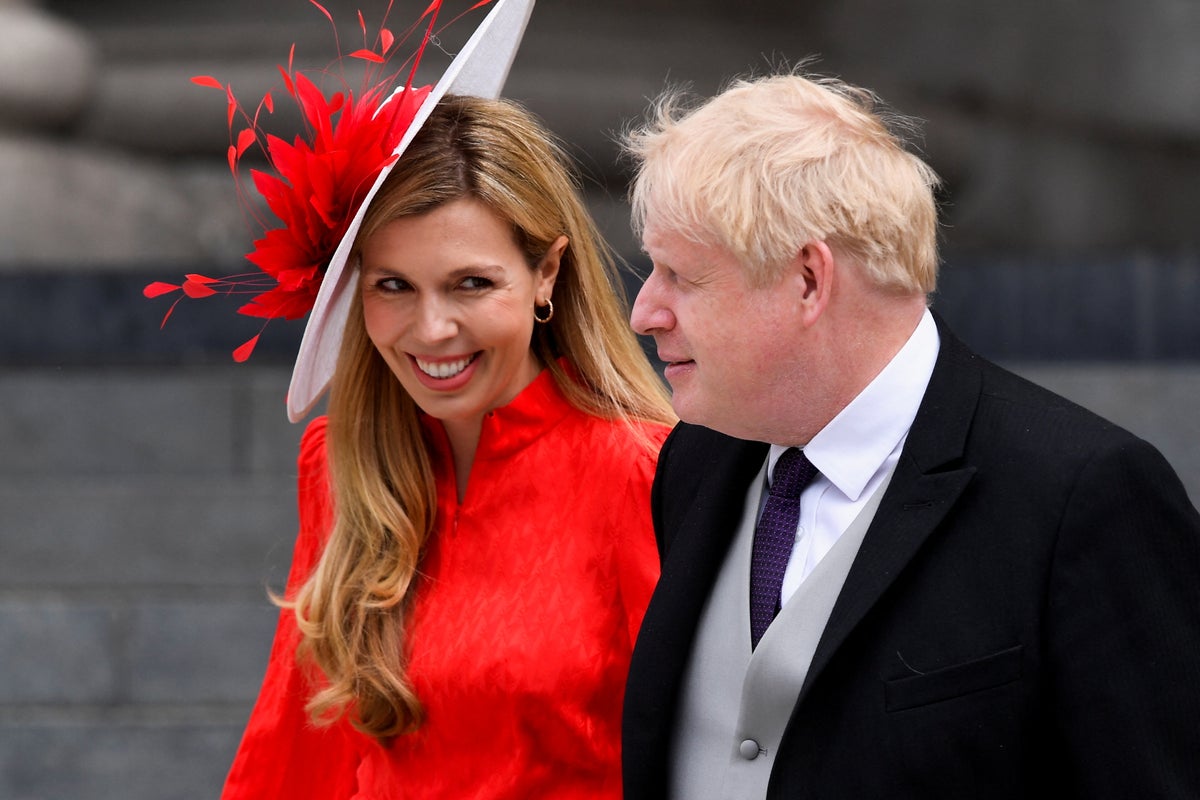
On Tuesday 11 July, Carrie Johnson announced that she and former prime minister Boris Johnson have welcomed their third child together.
Frank Alfred Odysseus Johnson was born on 5 July ay 9.15am, Carrie revealed in an Instagram post before joking: “Can you guess which name my husband chose?”
Much has already been made about the choice of names on social media, with people quick to point out that the former PM is a fan of the Greek poet Homer and his epic poem The Odyssey, which tells the story Odysseus.
But what does the name – and the child’s other names – actually mean?
Odysseus takes its moniker from Homer’s poem, which follows the legendary king of the island of Ithaca on his , who is returning home at the end of the 10-year Trojan War. His journey takes an additional 10 years, during which his crewmates perish and he must face a number of threats.
In the poem, which covers a decade-long journey, Odysseus is portrayed as exceptionally intelligent and courageous.
He is one of the most influential Greek mythology heroes and the name is often associated with wisdom, pride, and heroism.
As for the newborn’s first and second names, Frank comes from the Medieval Latin term, “Francus”, which means “free, at liberty, and exempt from service”, according to etymonline.com.
It’s also thought to be connected to the Old French word, “franc”, which, similarly, means “not servile”, with other associations including sincere, genuine, open, gracious, generous, worthy, noble, and illustrious.
Carrie Johnson has given birth to her and Boris Johnson’s third child together— (Instagram/Carrie Johnson)
However, Merriam-Webster claims that the name Frank itself comes from the Franks, “a West Germanic people who lived long ago”.
The dictionary continues: “In the early Middle Ages the Franks were in power in France. (It was from them that the country got its name, in Latin Francia.)
“The Franks eventually merged with the earlier Gaulish and Roman inhabitants, and their name (Francus in Latin) lost its ethnic sense and referred to any inhabitant of Francia who was free, that is, not a slave or bondman.”
As for Alfred, the name is believed to mean “elf counsel” and is derived from the Old English name, Ælfræd.
It’s a name often associated with wisdom and is most commonly associated with famous Alfreds, including the ninth-century king, Alfred the Great, filmmaker Alfred Hitchcock, and the poet Lord Alfred Tennyson.
In 2019, the former PM was accused of misquoting Lord Tennyson while discussing Brexit, pledgingthat Britain would leave the EU on 31 October “do or die, come what may”.
The phrase is often linked to Tennyson’s poem, The Charge of the Light Brigade, except the quote is, “Theirs not to reason why, theirs but to do and die”.







